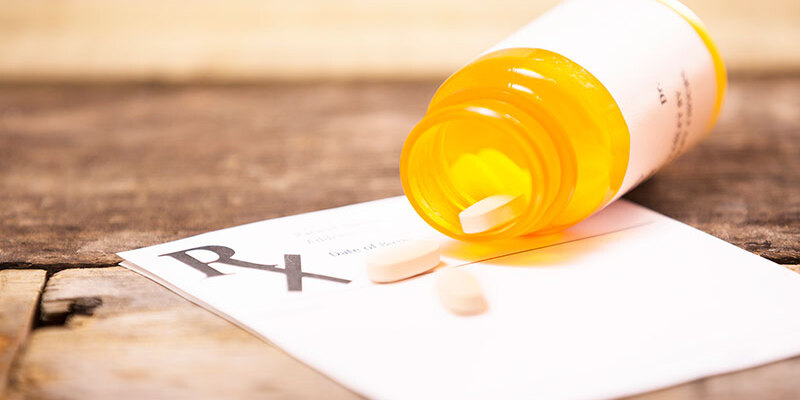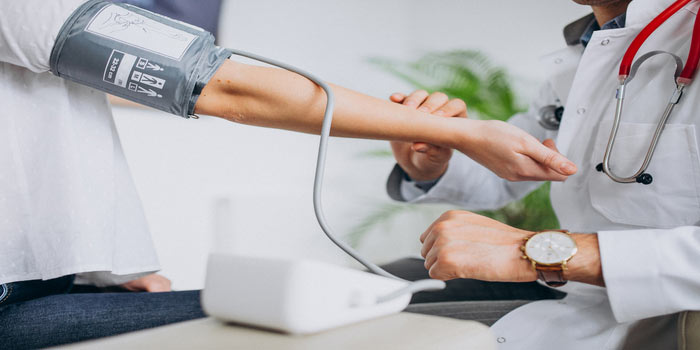High blood pressure, also known as hypertension, is a common health condition affecting millions of people worldwide. It occurs when the force of blood against the walls of arteries is consistently high, leading to serious health problems, such as heart disease, stroke, and kidney disease. Effective high blood pressure treatment prevents these complications and maintains good health.
Lifestyle Changes For High Blood Pressure Treatment
Lifestyle changes are a crucial part of high blood pressure treatment. Making healthy choices helps manage high blood pressure without needing medications. Eating a healthy diet low in salt, engaging in regular physical activity, reducing stress levels, limiting alcohol and tobacco use, and maintaining a healthy weight are significant lifestyle changes that can help lower blood pressure. These changes can also improve overall health and well-being, reducing the risk of other health problems such as heart disease, stroke, and diabetes.
While making lifestyle changes can be challenging, it is essential to remember that even small changes can make a difference. Working with a healthcare professional and seeking support from family and friends can help make the process easier and more successful.
Healthy Diet And Nutrition
Diet and nutrition play a critical role in managing high blood pressure. Eating a healthy, balanced diet rich in fruits, vegetables, whole grains, and lean protein sources can help reduce blood pressure. One of the critical components of a blood pressure-friendly diet is reducing sodium intake. According to the American Heart Association, those with hypertension should consume even less sodium than the recommended daily maximum of 2,300 milligrammes.
In addition, it is important to limit saturated and trans fats, which can increase the risk of heart disease. Instead, aim for healthy fats like nuts and seeds and fatty fish like salmon. Last but not least, it is crucial to maintain adequate hydration by consuming large amounts of water while avoiding sugary beverages such as soda and juice. Consulting with a registered dietitian
Regular Exercise And Physical Activity

Physical activity and regular exercise are essential components of high blood pressure treatment. Regular exercise can help improve heart health, reduce stress levels, and improve overall fitness. The American Heart Association suggests doing muscle-strengthening activities at least twice weekly in addition to at a minimum 150 hours of moderate-intensity aerobic activity and 75 minutes of intense aerobic exercise every week.Aerobic exercises include brisk walking, cycling, swimming, and dancing. Strength training exercises like lifting weights or using resistance bands can also help build muscle and improve overall health.
Before starting a new exercise program, it is essential to consult with a healthcare professional to ensure that it is safe and appropriate for individual needs and health status. Additionally, starting slowly and gradually increasing the intensity and duration of exercise can help prevent injury and improve adherence to an exercise program.
Stress Reduction Techniques
Stress can contribute to high blood pressure, so it is essential to find ways to manage stress effectively. Meditation, deep breathing exercises, and yoga can help reduce stress levels.
Limiting Alcohol And Tobacco Use
Consuming too much alcohol and tobacco can increase blood pressure and heart disease risk. Limiting or avoiding these substances can help manage high blood pressure.
Maintaining A Healthy Weight
Being overweight or obese can increase the risk of high blood pressure. Losing weight through a healthy diet and regular exercise can help manage high blood pressure and reduce the risk of heart disease.
Medications For High Blood Pressure Treatment

Medications are often prescribed to manage high blood pressure when lifestyle changes alone are insufficient. Several drugs are available to treat high blood pressure, including diuretics, ACE inhibitors, angiotensin II receptor blockers, beta-blockers, calcium channel blockers, and renin inhibitors. These medications work in different ways to lower blood pressure, and a combination of drugs may be prescribed to achieve optimal results.
Working closely with a healthcare professional to determine the best medication regimen for individual needs and monitor for potential side effects is essential. Additionally, taking medications as prescribed and communicating any concerns or issues with healthcare providers is necessary. Drugs can effectively manage high blood pressure, but it is also essential to continue with healthy lifestyle changes.
Conclusion
High blood pressure is a severe health condition that requires prompt and effective treatment. While medications can effectively manage high blood pressure, lifestyle changes such as a healthy diet, regular exercise, stress reduction, and limiting alcohol and tobacco use are also crucial components of treatment. Working with a healthcare professional to develop a personalized treatment plan that considers individual needs and health status is essential in achieving optimal results. Additionally, monitoring blood pressure regularly and seeking medical attention if readings remain consistently high is critical for managing high blood pressure and reducing the risk of associated health problems.




